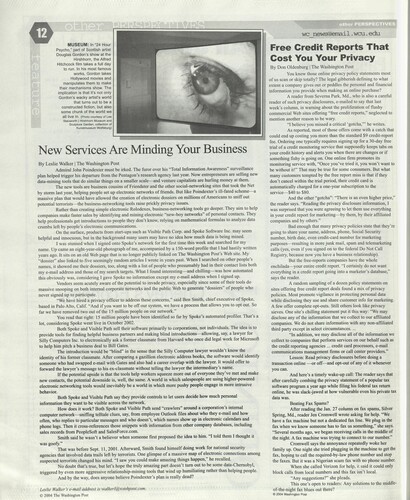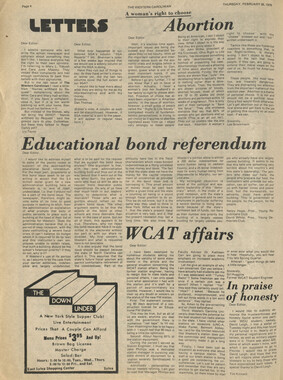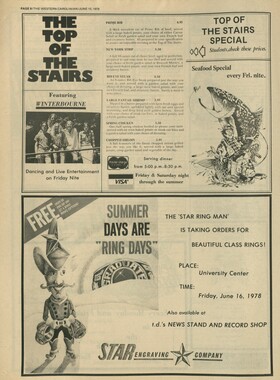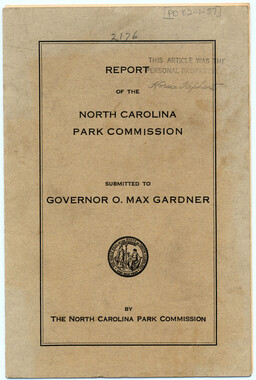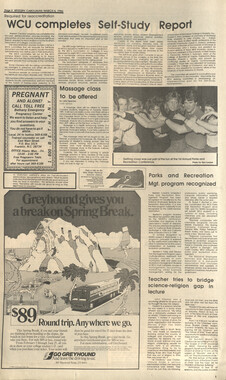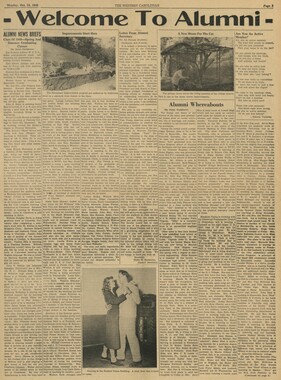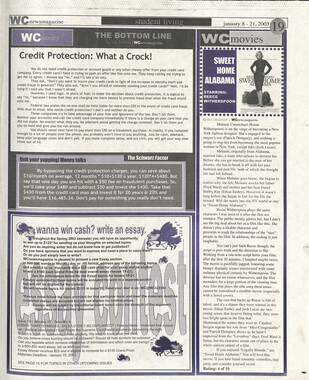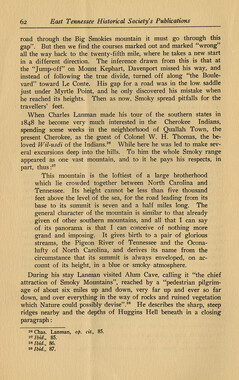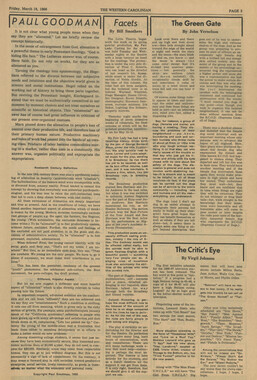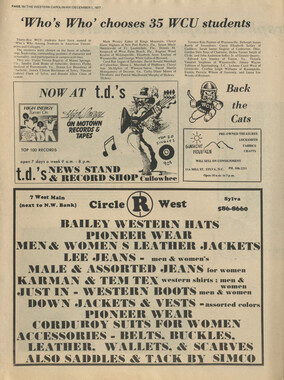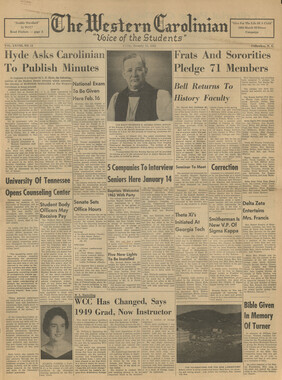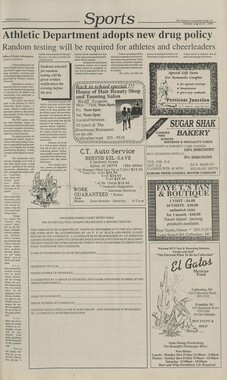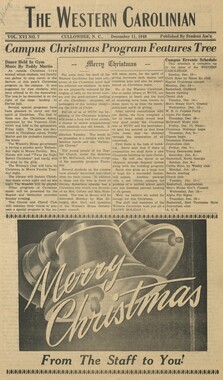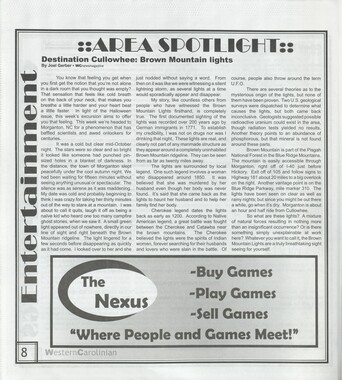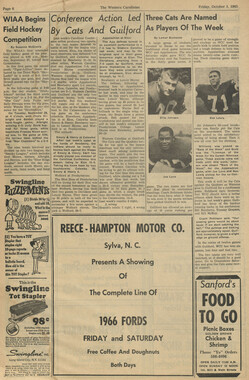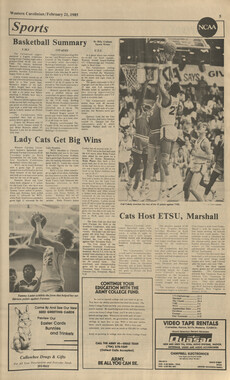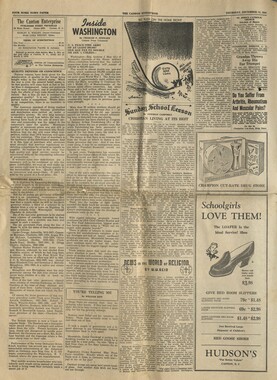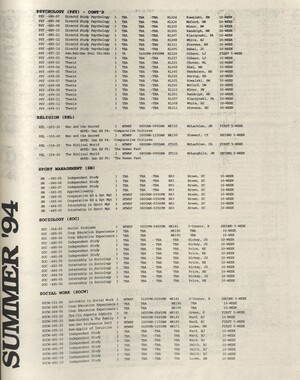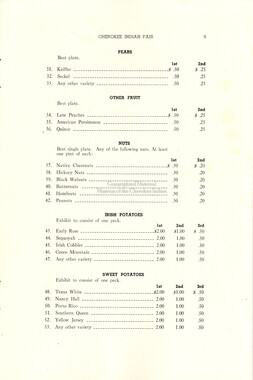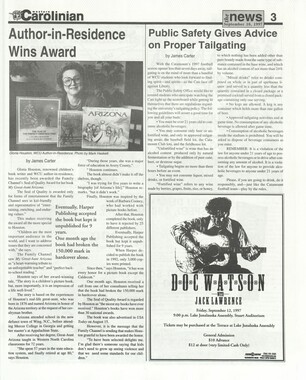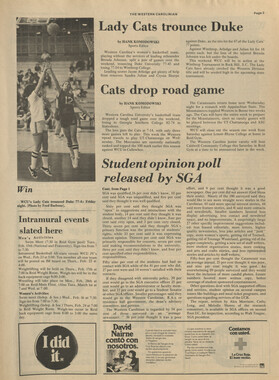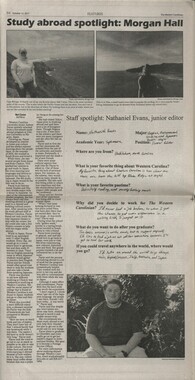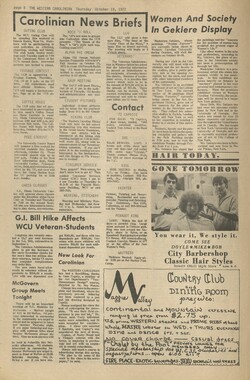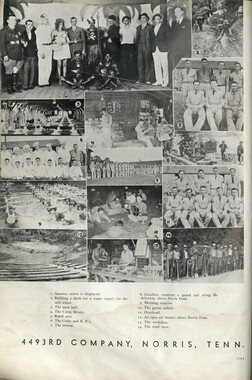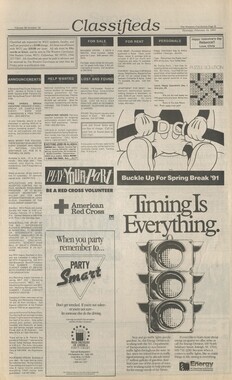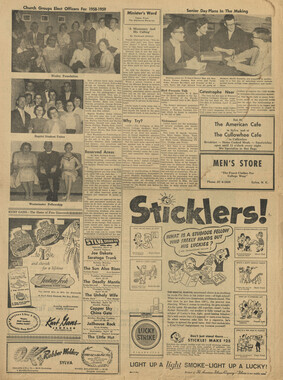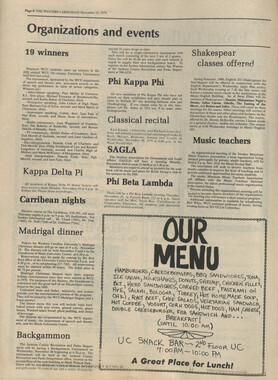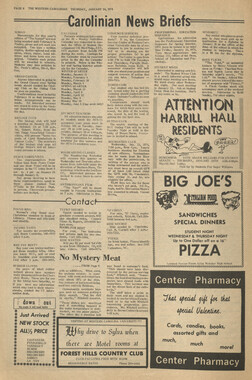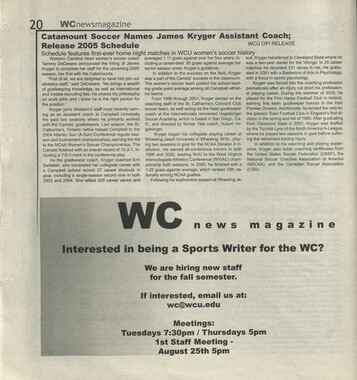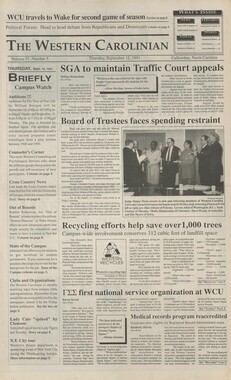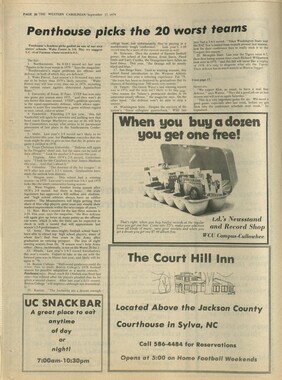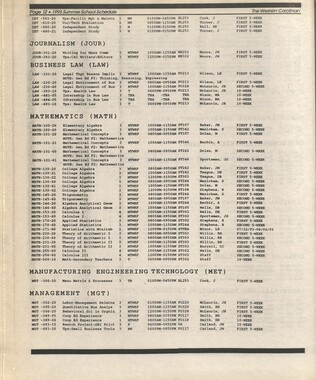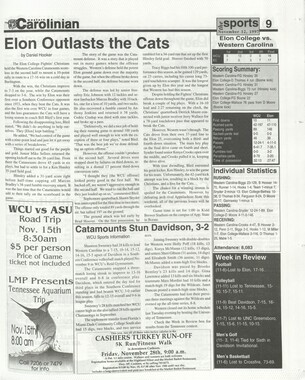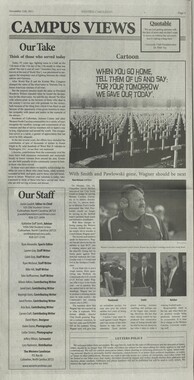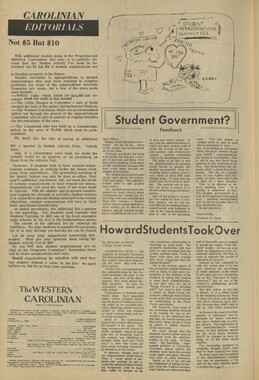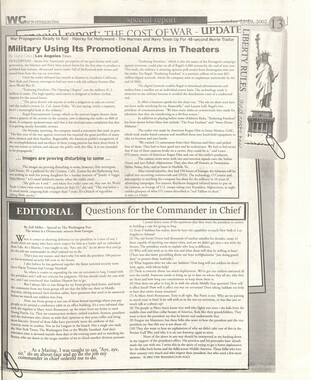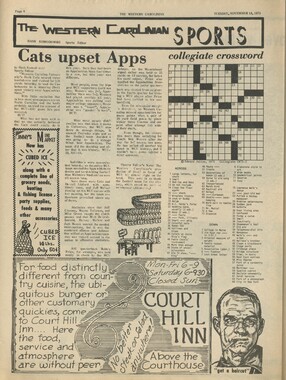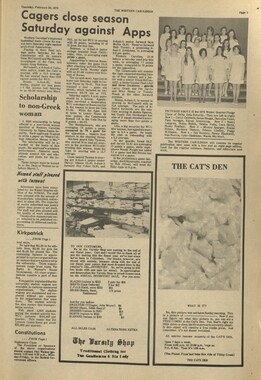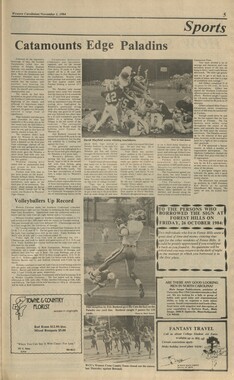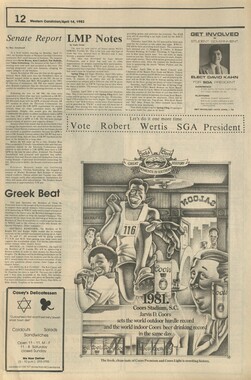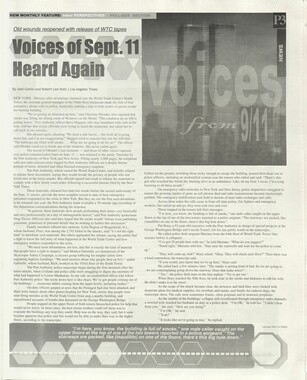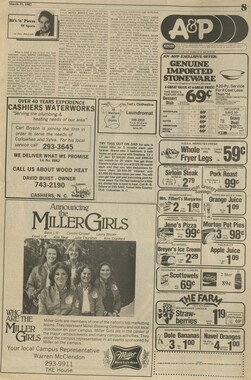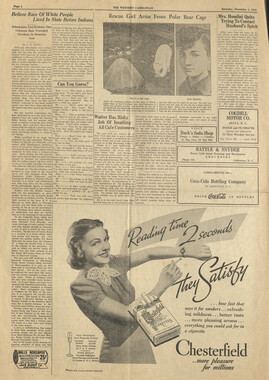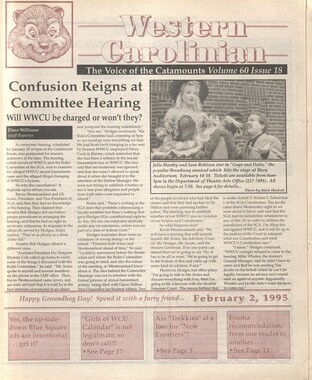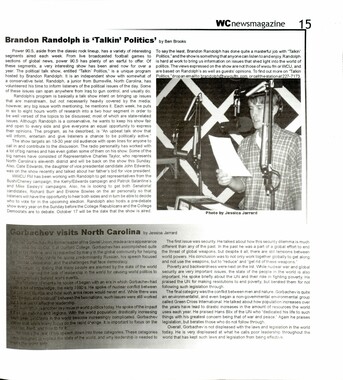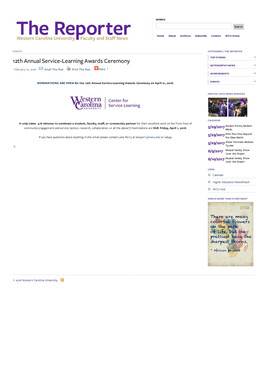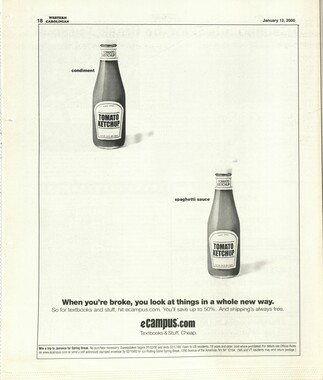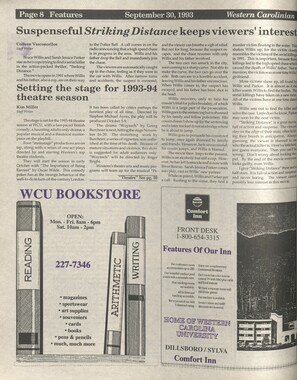Western Carolina University (21)
View all
- Canton Champion Fibre Company (2308)
- Cherokee Traditions (291)
- Civil War in Southern Appalachia (165)
- Craft Revival (1942)
- George Masa Collection (137)
- Great Smoky Mountains - A Park for America (3080)
- Highlights from Western Carolina University (422)
- Horace Kephart (973)
- Journeys Through Jackson (159)
- LGBTQIA+ Archive of Jackson County (89)
- Oral Histories of Western North Carolina (318)
- Picturing Appalachia (6617)
- Stories of Mountain Folk (413)
- Travel Western North Carolina (153)
- Western Carolina University Fine Art Museum Vitreograph Collection (129)
- Western Carolina University Herbarium (92)
- Western Carolina University: Making Memories (738)
- Western Carolina University Publications (2491)
- Western Carolina University Restricted Electronic Theses and Dissertations (146)
- Western North Carolina Regional Maps (71)
- World War II in Southern Appalachia (131)
University of North Carolina Asheville (6)
View all
- Allanstand Cottage Industries (62)
- Appalachian National Park Association (53)
- Bennett, Kelly, 1890-1974 (1463)
- Berry, Walter (76)
- Brasstown Carvers (40)
- Carver, George Washington, 1864?-1943 (26)
- Cathey, Joseph, 1803-1874 (1)
- Champion Fibre Company (233)
- Champion Paper and Fibre Company (297)
- Cherokee Indian Fair Association (16)
- Cherokee Language Program (22)
- Crowe, Amanda (40)
- Edmonston, Thomas Benton, 1842-1907 (7)
- Ensley, A. L. (Abraham Lincoln), 1865-1948 (275)
- Fromer, Irving Rhodes, 1913-1994 (70)
- George Butz (BFS 1907) (46)
- Goodrich, Frances Louisa (120)
- Grant, George Alexander, 1891-1964 (96)
- Heard, Marian Gladys (60)
- Kephart, Calvin, 1883-1969 (15)
- Kephart, Horace, 1862-1931 (313)
- Kephart, Laura, 1862-1954 (67)
- Laney, Gideon Thomas, 1889-1976 (439)
- Masa, George, 1881-1933 (61)
- McElhinney, William Julian, 1896-1953 (44)
- Niggli, Josephina, 1910-1983 (10)
- North Carolina Park Commission (105)
- Osborne, Kezia Stradley (9)
- Owens, Samuel Robert, 1918-1995 (11)
- Penland Weavers and Potters (36)
- Roberts, Vivienne (15)
- Roth, Albert, 1890-1974 (142)
- Schenck, Carl Alwin, 1868-1955 (1)
- Sherrill's Photography Studio (2565)
- Southern Highland Handicraft Guild (127)
- Southern Highlanders, Inc. (71)
- Stalcup, Jesse Bryson (46)
- Stearns, I. K. (213)
- Thompson, James Edward, 1880-1976 (226)
- United States. Indian Arts and Crafts Board (130)
- USFS (683)
- Vance, Zebulon Baird, 1830-1894 (1)
- Weaver, Zebulon, 1872-1948 (58)
- Western Carolina College (230)
- Western Carolina Teachers College (282)
- Western Carolina University (2008)
- Western Carolina University. Mountain Heritage Center (18)
- Whitman, Walt, 1819-1892 (10)
- Wilburn, Hiram Coleman, 1880-1967 (73)
- Williams, Isadora (3)
- Cain, Doreyl Ammons (0)
- Crittenden, Lorraine (0)
- Rhodes, Judy (0)
- Smith, Edward Clark (0)
- Appalachian Region, Southern (3032)
- Asheville (N.C.) (1945)
- Avery County (N.C.) (26)
- Blount County (Tenn.) (195)
- Buncombe County (N.C.) (1680)
- Cherokee County (N.C.) (283)
- Clay County (N.C.) (556)
- Graham County (N.C.) (238)
- Great Smoky Mountains National Park (N.C. and Tenn.) (525)
- Haywood County (N.C.) (3573)
- Henderson County (N.C.) (70)
- Jackson County (N.C.) (4925)
- Knox County (Tenn.) (35)
- Knoxville (Tenn.) (13)
- Lake Santeetlah (N.C.) (10)
- Macon County (N.C.) (421)
- Madison County (N.C.) (216)
- McDowell County (N.C.) (39)
- Mitchell County (N.C.) (135)
- Polk County (N.C.) (35)
- Qualla Boundary (982)
- Rutherford County (N.C.) (78)
- Swain County (N.C.) (2185)
- Transylvania County (N.C.) (270)
- Watauga County (N.C.) (12)
- Waynesville (N.C.) (86)
- Yancey County (N.C.) (72)
- Aerial Photographs (3)
- Aerial Views (60)
- Albums (books) (4)
- Articles (1)
- Artifacts (object Genre) (228)
- Bibliographies (1)
- Biography (general Genre) (2)
- Cards (information Artifacts) (38)
- Clippings (information Artifacts) (192)
- Copybooks (instructional Materials) (3)
- Crafts (art Genres) (622)
- Depictions (visual Works) (21)
- Design Drawings (1)
- Digital Moving Image Formats (2)
- Drawings (visual Works) (185)
- Envelopes (101)
- Exhibitions (events) (1)
- Facsimiles (reproductions) (1)
- Fiction (general Genre) (4)
- Financial Records (12)
- Fliers (printed Matter) (67)
- Glass Plate Negatives (381)
- Guidebooks (2)
- Internegatives (10)
- Interviews (823)
- Land Surveys (102)
- Letters (correspondence) (1045)
- Manuscripts (documents) (618)
- Maps (documents) (177)
- Memorandums (25)
- Minutes (administrative Records) (59)
- Negatives (photographs) (6090)
- Newsletters (1290)
- Newspapers (2)
- Notebooks (8)
- Occupation Currency (1)
- Paintings (visual Works) (1)
- Pen And Ink Drawings (1)
- Periodicals (194)
- Personal Narratives (10)
- Photographs (12977)
- Plans (maps) (1)
- Poetry (6)
- Portraits (4568)
- Postcards (329)
- Programs (documents) (181)
- Publications (documents) (2444)
- Questionnaires (65)
- Relief Prints (26)
- Sayings (literary Genre) (1)
- Scrapbooks (282)
- Sheet Music (2)
- Slides (photographs) (402)
- Songs (musical Compositions) (2)
- Sound Recordings (802)
- Specimens (92)
- Speeches (documents) (18)
- Tintypes (photographs) (8)
- Transcripts (329)
- Text Messages (0)
- A.L. Ensley Collection (275)
- Appalachian Industrial School Records (7)
- Appalachian National Park Association Records (336)
- Axley-Meroney Collection (2)
- Bayard Wootten Photograph Collection (20)
- Bethel Rural Community Organization Collection (7)
- Blumer Collection (5)
- C.W. Slagle Collection (20)
- Canton Area Historical Museum (2110)
- Carlos C. Campbell Collection (462)
- Cataloochee History Project (64)
- Cherokee Studies Collection (4)
- Daisy Dame Photograph Album (5)
- Daniel Boone VI Collection (1)
- Doris Ulmann Photograph Collection (112)
- Elizabeth H. Lasley Collection (1)
- Elizabeth Woolworth Szold Fleharty Collection (4)
- Frank Fry Collection (95)
- George Masa Collection (173)
- Gideon Laney Collection (452)
- Hazel Scarborough Collection (2)
- Hiram C. Wilburn Papers (28)
- Historic Photographs Collection (236)
- Horace Kephart Collection (861)
- Humbard Collection (33)
- Hunter and Weaver Families Collection (1)
- I. D. Blumenthal Collection (4)
- Isadora Williams Collection (4)
- Jesse Bryson Stalcup Collection (47)
- Jim Thompson Collection (224)
- John B. Battle Collection (7)
- John C. Campbell Folk School Records (80)
- John Parris Collection (6)
- Judaculla Rock project (2)
- Kelly Bennett Collection (1482)
- Love Family Papers (11)
- Major Wiley Parris Civil War Letters (3)
- Map Collection (12)
- McFee-Misemer Civil War Letters (34)
- Mountain Heritage Center Collection (4)
- Norburn - Robertson - Thomson Families Collection (44)
- Pauline Hood Collection (7)
- Pre-Guild Collection (2)
- Qualla Arts and Crafts Mutual Collection (12)
- R.A. Romanes Collection (681)
- Rosser H. Taylor Collection (1)
- Samuel Robert Owens Collection (94)
- Sara Madison Collection (144)
- Sherrill Studio Photo Collection (2558)
- Smoky Mountains Hiking Club Collection (616)
- Stories of Mountain Folk - Radio Programs (374)
- The Reporter, Western Carolina University (510)
- Venoy and Elizabeth Reed Collection (16)
- WCU Gender and Sexuality Oral History Project (36)
- WCU Mountain Heritage Center Oral Histories (25)
- WCU Oral History Collection - Mountain People, Mountain Lives (71)
- WCU Students Newspapers Collection (1923)
- Western North Carolina Tomorrow Black Oral History Project (69)
- William Williams Stringfield Collection (2)
- Zebulon Weaver Collection (109)
- African Americans (390)
- Appalachian Trail (35)
- Artisans (521)
- Cherokee art (84)
- Cherokee artists -- North Carolina (10)
- Cherokee language (21)
- Cherokee pottery (101)
- Cherokee women (208)
- Church buildings (190)
- Civilian Conservation Corps (U.S.) (111)
- College student newspapers and periodicals (2012)
- Dams (108)
- Dance (1023)
- Education (222)
- Floods (63)
- Folk music (1015)
- Forced removal, 1813-1903 (2)
- Forest conservation (220)
- Forests and forestry (1198)
- Gender nonconformity (4)
- Great Smoky Mountains National Park (N.C. and Tenn.) (181)
- Hunting (47)
- Landscape photography (25)
- Logging (122)
- Maps (83)
- Mines and mineral resources (9)
- North Carolina -- Maps (18)
- Paper industry (38)
- Postcards (255)
- Pottery (135)
- Railroad trains (72)
- Rural electrification -- North Carolina, Western (3)
- School integration -- Southern States (2)
- Segregation -- North Carolina, Western (5)
- Slavery (5)
- Sports (452)
- Storytelling (243)
- Waterfalls -- Great Smoky Mountains (N.C. and Tenn.) (66)
- Weaving -- Appalachian Region, Southern (280)
- Wood-carving -- Appalachian Region, Southern (328)
- World War, 1939-1945 (173)
Western Carolinian Volume 68 Number 09
Item
Item’s are ‘child’ level descriptions to ‘parent’ objects, (e.g. one page of a whole book).
-
-
MUSEUM: In 24 Hour Psycho, part of Scottish artist Douglas Gordons show at the Hirshhorn, the Alfred Hitchcock film takes a full day to run. In his most famous works, Gordon takes Hollywood movies and manipulates them to make their mechanisms show. The implication is that it's not only Gordon's wacky artists world that turns out to be a constructed fiction, but also some chunk of the world we all live in. (Photo courtesy of Lee Stalsworth | Hirshhorn Museum and Sculpture Garden; collection of Kunstmuseum Wolfsburg) New Services Are Minding Your Business By Leslie Walker | The Washington Post Admiral John Poindexter must be irked. The furor over his Total Information Awareness surveillance plan helped trigger his departure from the Pentagons research agency last year. Now entrepreneurs are selling new data-mining tools that do similar things on a smaller scaleand venture capitalists are hurling money at them. The new tools are business cousins of Friendster and the other social-networking sites that took the Net by storm last year, helping people set up electronic networks of friends. But like Poindexters ill-fated schemea massive plan that would have allowed the creation of electronic dossiers on millions of Americans to sniff out potential terroriststhe business-networking tools raise prickly privacy issues. Rather than creating simple electronic Rolodexes, business-networking tools go deeper. They aim to help companies make faster sales by identifying and mining electronic new-boy networks of personal contacts. They help professionals get introductions to people they dont know, relying on mathematical formulas to analyze data crumbs left by peoples electronic communications. On the surface, products from start-ups such as Visible Path Corp. and Spoke Software Inc. may seem helpful and innocuous, but in the background many users may have no idea how much data is being mined. I was stunned when I signed onto Spokes network for the first time this week and searched for my name. Up came an eight-year-old photograph of me, accompanied by a 150-word profile that I had hastily written years ago. It sits on an old Web page that is no longer publicly linked on The Washington Posts Web site. My dossier also linked to five seemingly random articles I wrote in years past. When I searched on other peoples names, it showed me their dossiers, too, along with a list of people who presumably had in their contact lists both my e-mail address and those of my search targets. What I found interestingand chillingwas how automated this obviously was, considering I gave Spoke no information except my e-mail address when I signed up. Vendors seem acutely aware of the potential to invade privacy, especially since some of their tools do massive snooping on both internal corporate networks and the public Web to generate dossiers of people who never signed up to participate. We have hired a privacy officer to address these concerns, said Ben Smith, chief executive of Spoke, based in Palo Alto, Calif. And if you want to be off our system, we have a process that allows you to opt out. So far we have removed two out of the 15 million people on our network. You read that right: 15 million people have been identified so far by Spokes automated profiler. Thats a lot, considering Spoke went live in October 2002. Both Spoke and Visible Path sell their software primarily to corporations, not individuals. The idea is to provide tools for finding helpful business partners and making blind introductionsallowing, say, a lawyer for Silly Computers Inc. to electronically ask a former classmate from Harvard who once did legal work for Microsoft to help him pitch a business deal to Bill Gates. The introduction would be blind in the sense that the Silly Computer lawyer wouldnt know the identity of his former classmate. After comparing a gazillion electronic address books, the software would identify someone who had swapped e-mail with Gates and also had a career overlap with the lawyer. It would offer to forward the lawyers message to his ex-classmate without telling the lawyer the intermediarys name. If the potential upside is that the tools help workers squeeze more out of everyone theyve met and make new contacts, the potential downside is, well, the same. A world in which salespeople are using higher-powered electronic networking tools would inevitably be a world in which more pushy people engage in more intrusive behavior. Both Spoke and Visible Path say they provide controls to let users decide how much personal information they want to be visible across the network. How does it work? Both Spoke and Visible Path send crawlers around a corporations internal computer networksniffing telltale clues, say, from employee Outlook files about who they e-mail and how often, who replies to particular messages and who doesnt, which names show up in electronic calendars and phone logs. Then it cross-references those snippets with information from other company databases, including sales records from PeopleSoft and SalesForce.com. Smith said he wasnt a believer when someone first proposed the idea to him. I told them I thought it was goofy. That was before Sept. 11, 2001. Afterward, Smith found himself doing work for national security agencies that involved data trails left by terrorists. One glimpse of a massive map of electronic connections among suspected terrorists changed his mind. I saw you could make amazing things happen, he recalled. No doubt thats true, but lets hope the truly amazing part doesnt turn out to be some data-Chernobyl, triggered by even more aggressive relationship-mining tools that wind up humiliating rather than helping people. And by the way, does anyone believe Poindexters plan is really dead? Lsli Walker's e-mail address is walkerl@washpost.com. 2004 The Washington Post we_news@email .wcu.edu Free Credit Reports That Cost You Your Privacy By Don Oldenburg | The Washington Post You know those online privacy policy statements most of us scan or skip totally? The legal gibberish defining to what extent a company gives out or peddles the personal and financial information you provide when making an online purchase? A reader from Severna Park, Md., who is also a careful reader of such privacy disclosures, e-mailed to say that last weeks column, in warning about the proliferation of flashy commercial Web sites offering free credit reports, neglected to mention another reason to be wary. T believe you missed a critical gotcha, he writes. As reported, most of those offers come with a catch that could end up costing you more than the standard $9 credit-report fee. Ordering one typically requires signing up for a 30-day free trial of a credit monitoring service that supposedly keeps tabs on your credit history and alerts you when there are changes or if something fishy is going on. One online firm promotes its monitoring service with, Once you ve tried it, you wont want to be without it! That may be true for some consumers. But what many customers tempted by the free report miss is that if they dont cancel within the trial period, their credit card is automatically charged for a one-year subscription to the service$40 to $80. And the other gotcha: There is an even higher price, the reader says. Reading the privacy disclosure information, I was surprised that you were agreeing to let them use everything in your credit report for marketingby them, by their affiliated companies and by others. Bad enough that many privacy policies state that they re going to share your name, address, phone, Social Security number, birth date, even credit-card number for marketing purposestresulting in more junk mail, spam and telemarketing calls (yes, even if you signed on to the federal Do Not Call Registry, because now you have a business relationship). But the free-reports companies have the whole enchiladayour entire credit report. I certainly do not want everything in a credit report going into a marketers database, says the reader. A random sampling of a dozen policy statements on sites offering free credit report deals found a mix of privacy policies. Most promote vigilance in protecting personal data while disclosing they use and share customer info for marketing. A few offer complete opt-outs. Still others look like privacy sieves. One sites chilling statement put it this way: We may disclose any of the information that we collect to our affiliated companies. We do not share information with any non-affiliated third party except in select circumstances. ... In addition, we may disclose all of the information we collect to companies that perform services on our behalf such as the credit reporting agencies ... credit card processors, e-mail communications management firms or call center providers. Lesson: Read privacy disclosures before doing a transaction online or offand opt-out of any of it whenever you can. And heres a timely wake-up call: The reader says that after carefully combing the privacy statement of a popular tax software program a year ago while filing his federal tax return online, he was slack-jawed at how vulnerable even his private tax data was. ; Beating Fax Spams? After reading the Jan. 27 column on fax spams, Silver Spring, Md., reader Jen Cromwell wrote asking for help. We have a fax machine but not a dedicated fax line. We plug in the fax when we know someone has to fax us something, she says. Several months ago, we began receiving calls in the middle of the night. A fax machine was trying to connect to our number. Cromwell says the annoyance repeatedly woke her family up. One night she tried plugging in the machine to get the fax, hoping to call the required-by-law phone number and stop the faxes. But it was a Nigerian scam fax with no phone number. When she called Verizon for help, it said it could only block calls from local numbers and this fax isnt local. Any suggestions? she pleads. This ones open to readers: Any solutions to the middle- of-the-night fax blues out there? 2004 Washington Post 299 Se ee orn em
Object
Object’s are ‘parent’ level descriptions to ‘children’ items, (e.g. a book with pages).
-
The Western Carolinian is Western Carolina University's student-run newspaper. The paper was published as the Cullowhee Yodel from 1924 to 1931 before changing its name to The Western Carolinian in 1933.
-

